Key Takeaways
- Flies have a four-stage lifecycle: egg, larva, pupa, adult.
- They live 15–30 days, influenced by environment and food.
- Seal entry points and use traps to prevent infestations.
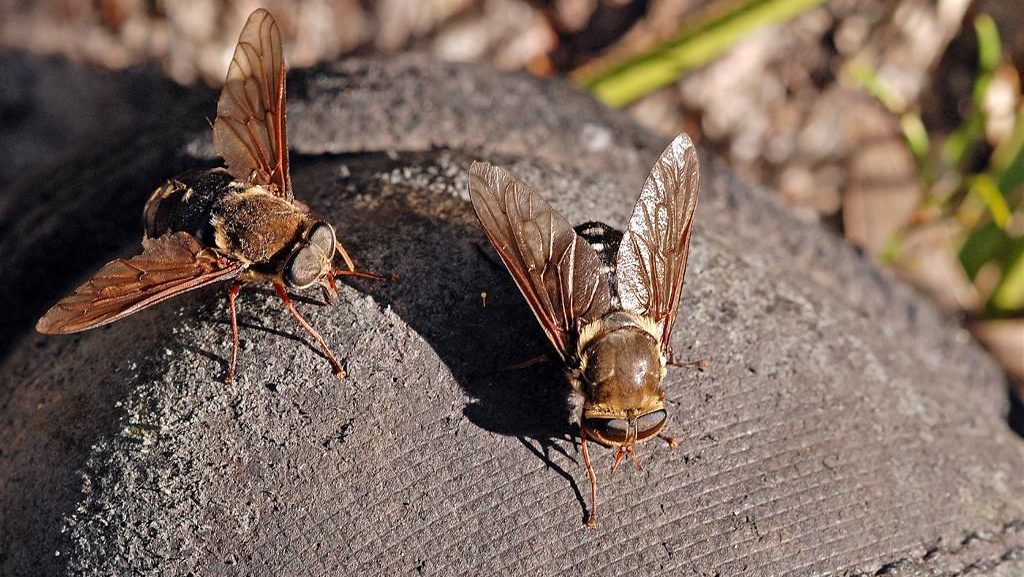 Flies are among the most common insects in homes, gardens, and outdoor environments. Their rapid reproduction and adaptability make them challenging to control once an infestation begins. By understanding the life cycle of flies, from egg to adult, you can take proactive measures to break their cycle and prevent them from multiplying in your home as they can be dangerous.
In this article, we’ll take a look at how long flies live, their reproductive habits, and their origins.
Flies are among the most common insects in homes, gardens, and outdoor environments. Their rapid reproduction and adaptability make them challenging to control once an infestation begins. By understanding the life cycle of flies, from egg to adult, you can take proactive measures to break their cycle and prevent them from multiplying in your home as they can be dangerous.
In this article, we’ll take a look at how long flies live, their reproductive habits, and their origins.
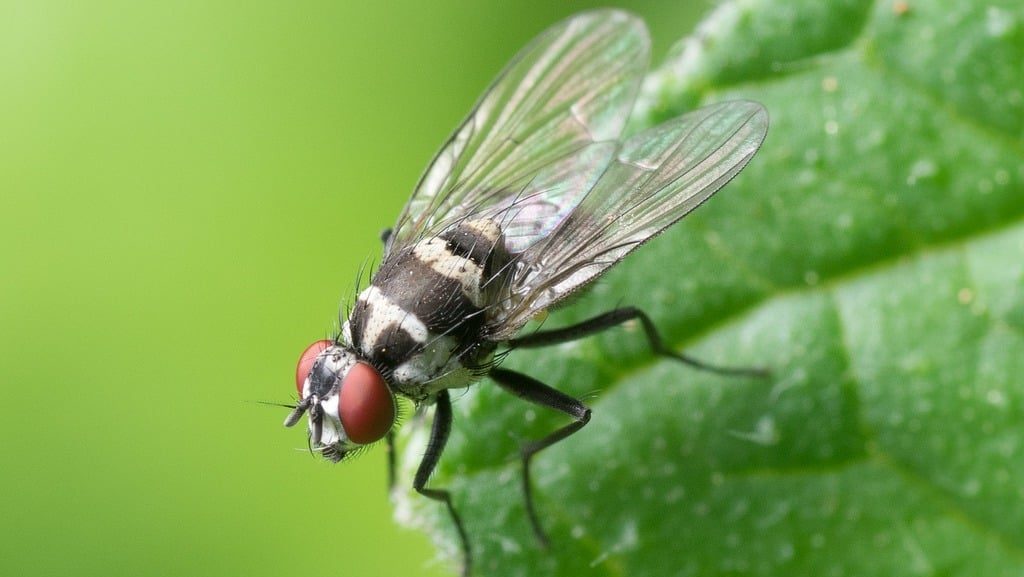

Not getting a solution?
Get your free pest control estimate today!How do Flies Reproduce?
Flies are holometabolic insects that undergo complete metamorphosis. They have four key life stages: egg, larva (maggot), pupa, and adult. Each of these stages plays an important role in the fly’s survival and reproduction. Let’s take a closer look at each stage below. Egg Stage The life cycle of the fly begins as an egg. Usually, they lay it in wet, rotting organic materials. Females keep their eggs in garbage bins, animal dung, decaying foodstuff, and moist locations. This means that the hatched larvae will find some food ready for them.Physical Characteristics of Fly Egg
-
Size and Shape: It is small and oval-shaped. It is white in color.
-
Site: Clutches of eggs are commonly found in secluded locations such as piles of trash, compost heaps, or animal waste.
-
Emergence: Hatching of the eggs may take between 8 and 24 hours under optimal conditions.
Physical Characteristics of Larva
-
Appearance: Small, white, legless, and worm-like creatures.
-
Behavior: Maggots feed on organic material, consuming as much as they can to grow rapidly.
-
Duration: It takes 4 to 8 days depending on temperature and food availability.
Physical Characteristics of Pupa
-
Color and Pattern: Brown, hardened, cocoon-like shell.
-
Location: Pupae can be found in the same place as larvae, such as garbage, soil, or compost piles.
-
Duration: This stage lasts 3 to 6 days.
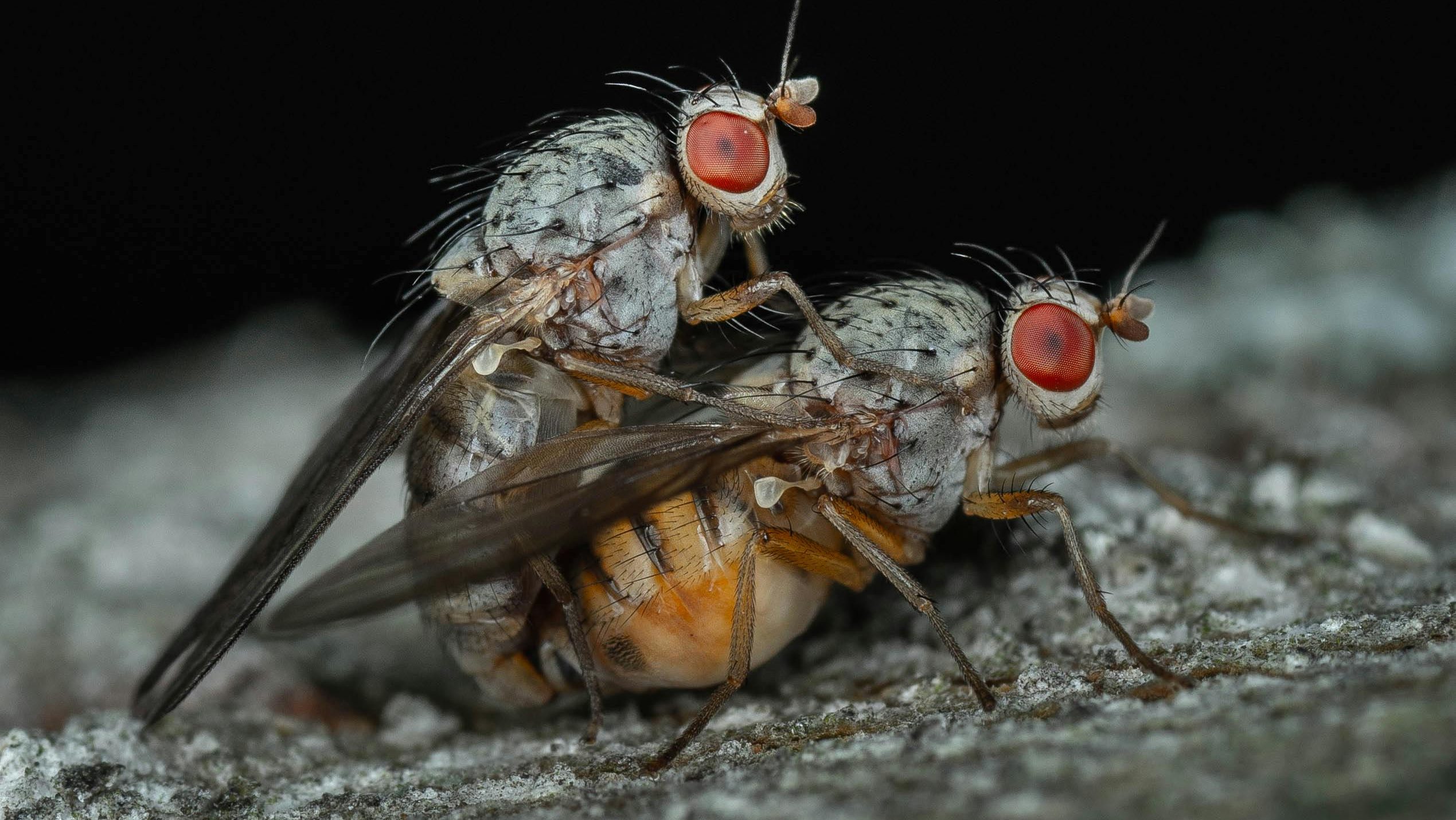 Adult Stage
From the pupal stage, an adult fly fully develops from the puparium. Adult flies have wings, compound eyes, and a three-segmented body. The main aim of the adult fly is to feed and reproduce. They seek food and mates within hours of emergence to start the cycle again.
Adult Stage
From the pupal stage, an adult fly fully develops from the puparium. Adult flies have wings, compound eyes, and a three-segmented body. The main aim of the adult fly is to feed and reproduce. They seek food and mates within hours of emergence to start the cycle again.
Physical Characteristics of Adult Fly
-
Appearance: A fully formed fly with wings, six legs, and large compound eyes.
-
Behavior: Adult flies are highly mobile and feed on waste food, organic matter, and sugary liquids.
-
Lifespan: Most flies survive for 15 to 30 days; however, depending on environmental conditions, some species might survive for a longer time.
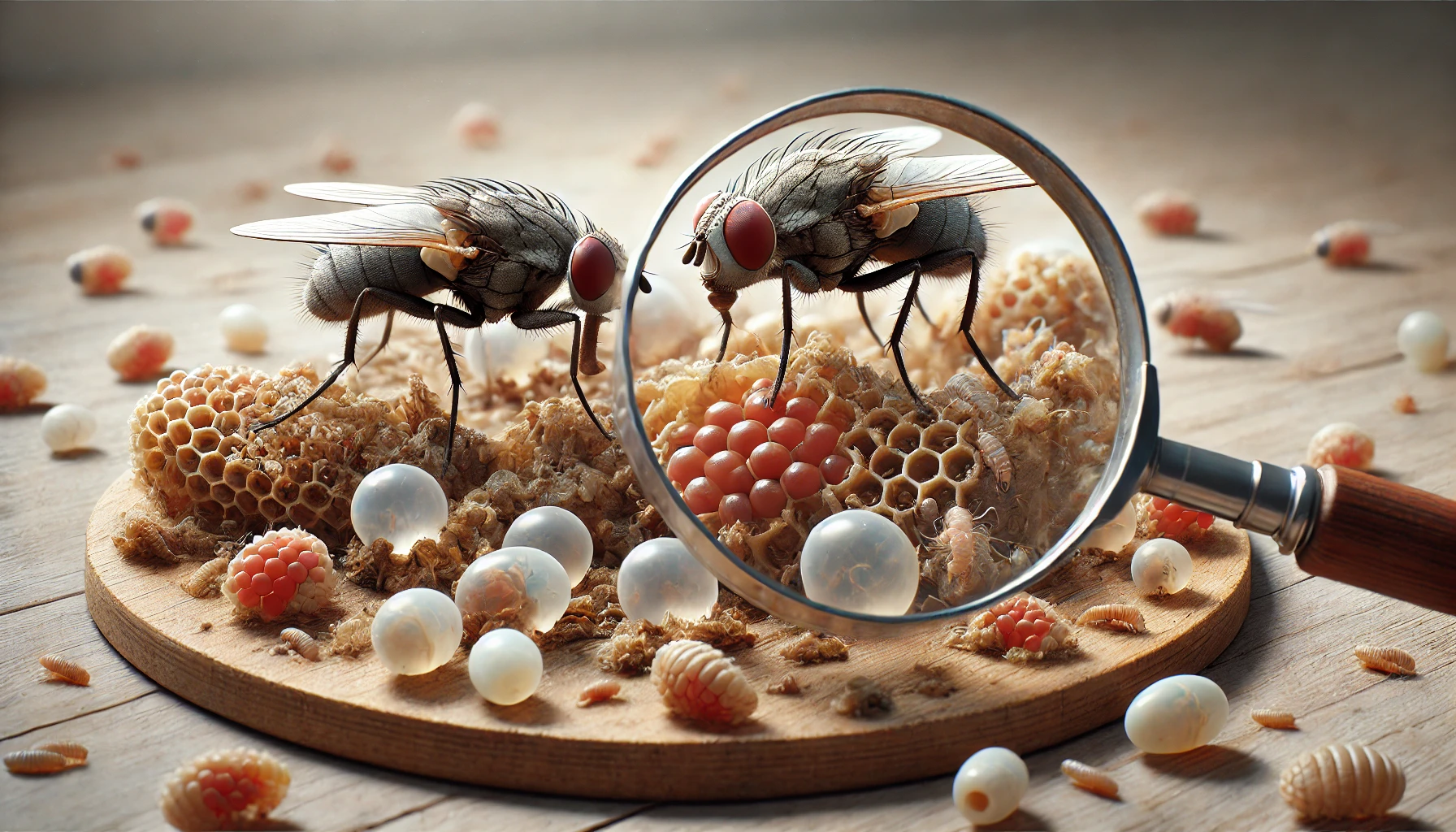
How Fast Do Flies Reproduce?
Flies reproduce quickly, making infestations hard to control. A single female fly produces up to 500 eggs in her lifetime, typically in batches of 75 to 150 eggs. These eggs are laid in moist, decaying organic matter to provide food for hatching larvae. Under warm, humid conditions, flies complete their life cycle in 7 to 10 days. Reproduction speed is influenced by temperature and food supply, with warmer environments and abundant organic waste accelerating growth. Check out our Flies Control and Treatment Methods to protect your home from pests.How Long Do Flies Live?
Flies have varying lifespans depending on their species and environmental conditions. For instance, houseflies, one of the most common types, typically live for about 15 to 30 days. Factors such as temperature, food availability, and humidity affect their lifespan. In warmer conditions, houseflies tend to live longer, while colder environments can shorten their lifespan. On the other hand, fruit flies have a much shorter life expectancy, generally lasting between 7 to 10 days. Their brief lifespan is a testament to their rapid reproduction cycle, which allows them to produce several generations in a very short time.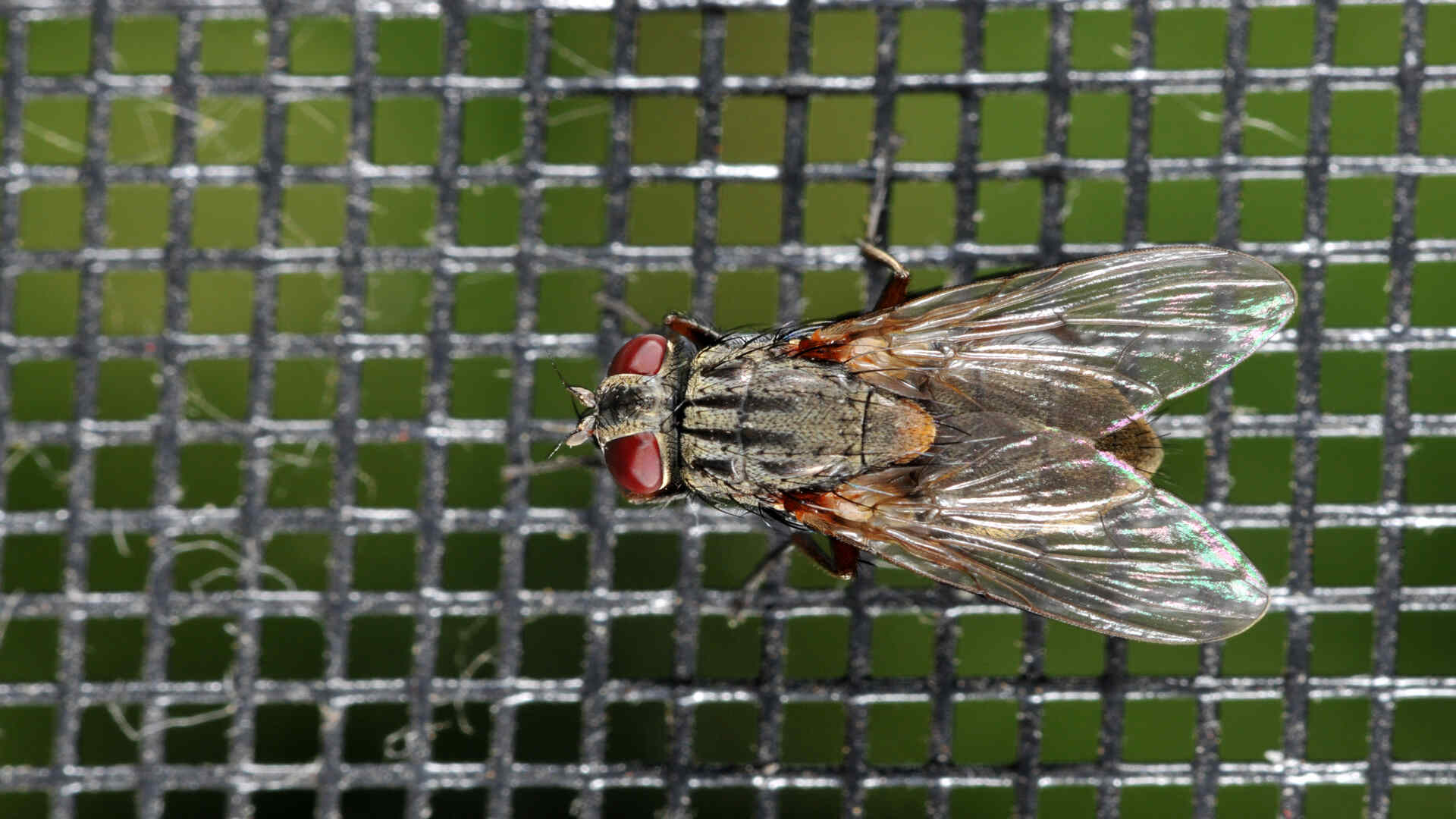
How Long Can Flies Survive Live Without Food?
Flies are remarkably adaptable and can survive in harsh environments. Without access to food, flies can live for 2 to 3 days, but they require water or moisture to avoid dehydration. Their ability to survive on minimal resources allows them to persist in various environments, from urban homes to rural farms. Flies are particularly drawn to sugary liquids, food residues, and organic waste, which provide the nourishment they need to thrive. This adaptability makes flies one of the most persistent pests, capable of enduring unfavorable conditions until better resources become available.How Long Can Flies Live Without a Host?
Flies are highly dependent on food sources for their survival. Without access to a host or a food source, their lifespan is significantly reduced. Most flies can only survive for about 1 to 2 days without food. This brief period highlights their need for constant access to nourishment. When deprived of a host, flies struggle to sustain themselves and quickly succumb to starvation. Their survival depends on their ability to find and access food, which is why they are often seen in areas where food is readily available.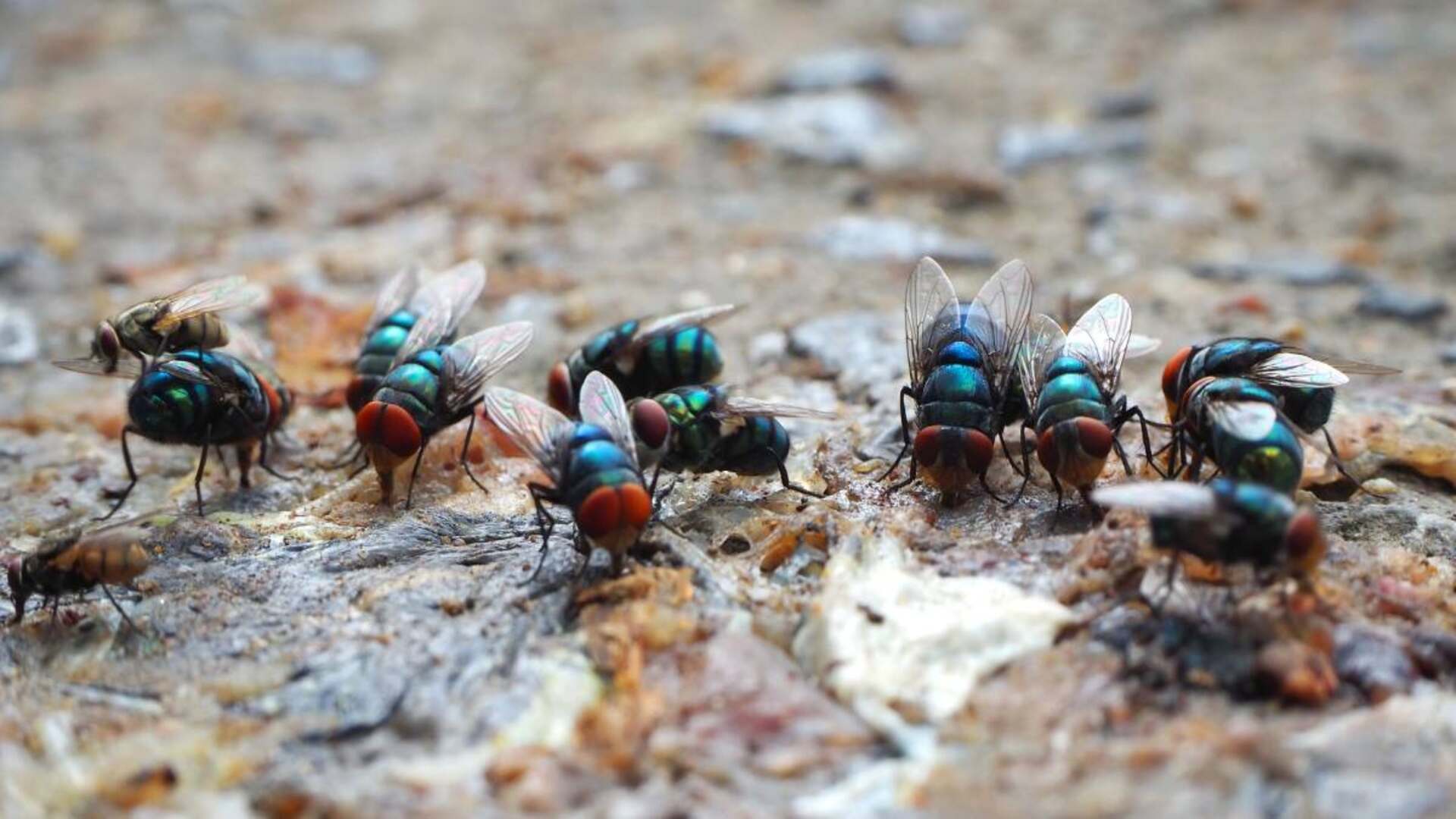
How to Prevent Flies From Entering Your Home?
Flies are persistent pests that can quickly multiply if not controlled. By targeting their food sources, breeding sites, and entry points, you can prevent an infestation before it starts. Here are some simple but effective prevention tips to keep flies out of your home:Tips to Prevent Flies
-
Dispose of garbage regularly to prevent flies from using trash as a breeding ground.
-
Keep trash bins sealed with tight-fitting lids to block flies from accessing waste.
-
Clean up pet waste regularly to eliminate a common site for fly egg-laying.
-
Wipe down kitchen surfaces and floors to remove food particles and sticky residues that attract flies.
-
Disinfect drains and sinks to prevent drain flies from using them as breeding grounds.
-
Windows and door screens can prevent flies from entering your home.
-
Close cracks and gaps around doors, windows, and foundations to block fly entry points.
-
Place fly traps in areas with heavy fly activity to capture and reduce their population.
-
Use natural repellents like peppermint or citronella essential oils to keep flies at bay.
-
Fix leaky taps and pipes to eliminate moisture that attracts flies.
-
Use dehumidifiers to reduce humidity levels.
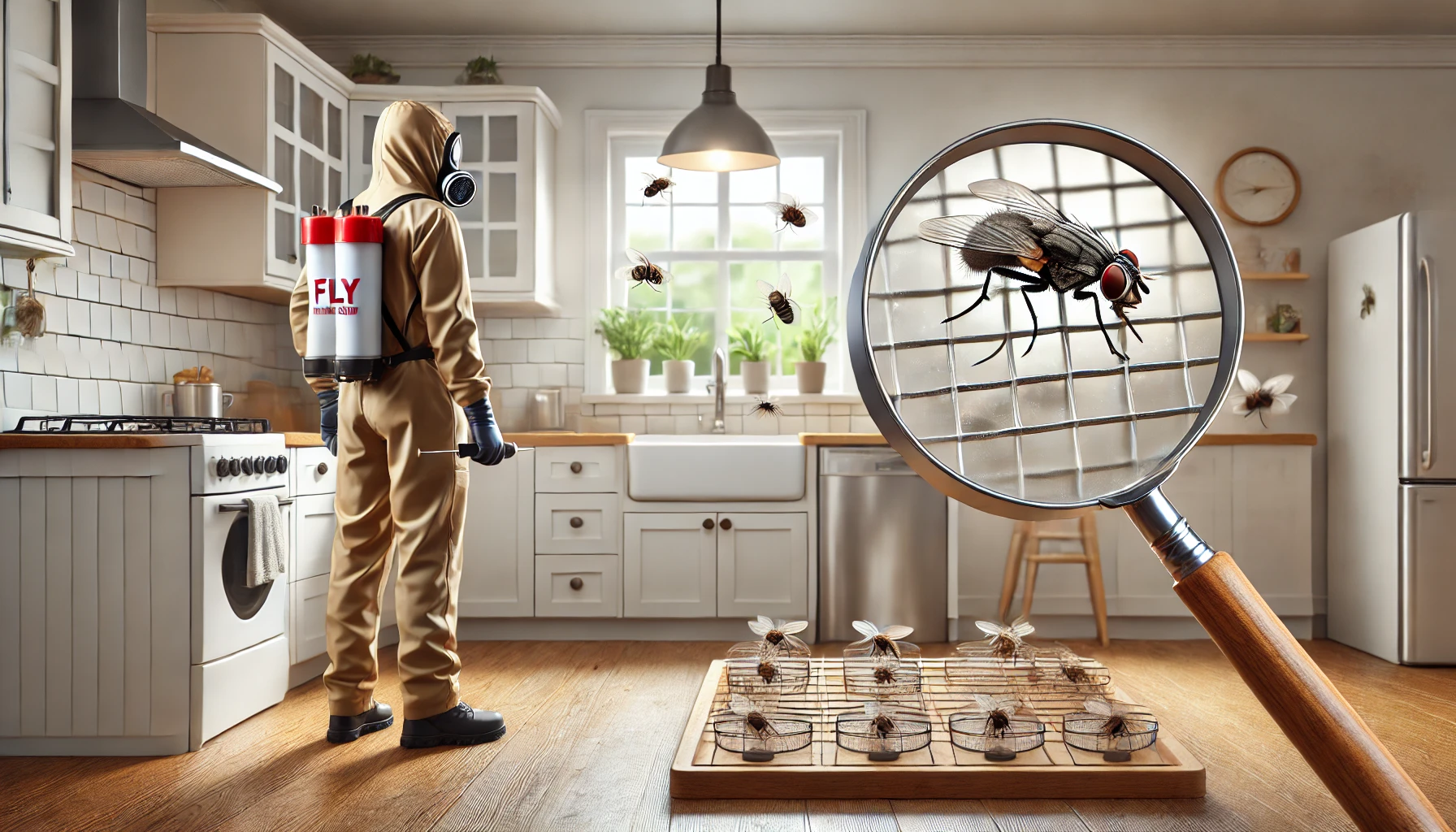
Myths and Facts About Flies
Many myths surround flies’ behavior and lifespan. Let’s find out the truth behind these misconceptions that can help you manage and control fly infestations more effectively. Here are some of the most common myths about flies and the facts that debunk them:| Myth | Fact |
|---|---|
| Flies can live for months without a host. | Flies typically survive only 1-2 days without food. |
| Flies come from dirty surfaces only. | Flies lay eggs in decaying matter, not just dirt. |
| Flies don’t reproduce quickly. | Flies can reproduce within a week of becoming adults. |
| All fly species have the same lifespan. | Lifespans vary by species, with houseflies living 15-30 days. |
| Flies can live indefinitely in a house. | Flies live for 15-30 days depending on their species and environmental conditions. |





